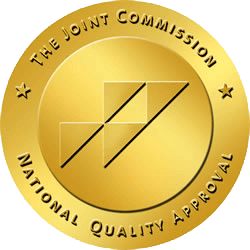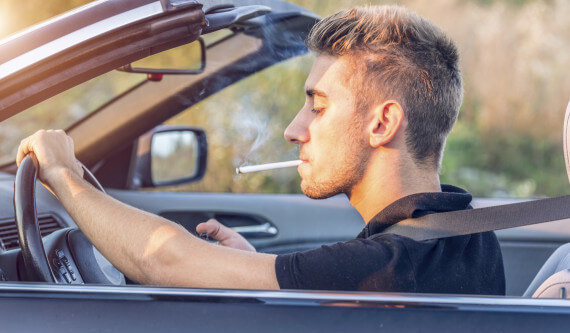Maybe you know your teenager is using drugs, but you don’t know the extent of the abuse or whether he or she is addicted. There’s a chance that you consider your child’s drug abuse to be a matter of rebellion or simply behaving badly, but understanding how drugs and alcohol affect the brain is essential for differentiating between abuse and addiction, and it’s critical for helping you realize that people who abuse drugs or alcohol typically have underlying issues. Drug abuse or addiction does not mean that your child is “bad” or “acting out.”
Why Teens Use Drugs
Teens engage in drug use for a variety of reasons. Drugs produce feelings of pleasure, and they can seem to help alleviate social anxiety, low self-esteem, and feelings of powerlessness over one’s life. A number of environmental and genetic factors contribute to whether or not a teen will use or become addicted to drugs, according to the National Institute on Drug Abuse (1):
- Teens who have friends who use drugs are more likely to try drugs themselves. Teens are poorly-equipped to resist peer pressure due to the undeveloped prefrontal cortex.
- Teens who have poor social skills or a mental illness, such as depression or anxiety, are more likely to abuse drugs and become addicted to them.
- Teens who live with other people who abuse drugs or who engage in criminal behavior are more likely to use drugs.
- Teens who have low self-esteem or who have an unhappy home life are more likely to engage in drug abuse.
The prefrontal cortex of an adolescent’s brain is still in development. Because this is the part of the brain that’s responsible for the ability to control one’s behavior, assess situations, and make good decisions, teens are more vulnerable when it comes to both starting to use drugs and developing an addiction.
Drug Abuse vs. Addiction
Drug abuse is defined as any use of illegal drugs or taking a prescription drug in ways other than as prescribed by a physician. Drug abuse and addiction aren’t the same thing, according to kidshealth.org. Your teen can abuse drugs without becoming addicted to them, although drug abuse is obviously a major risk factor for developing an addiction. Drug addiction is both psychological and physical. The powerful psychological aspects of addiction are characterized by continuing to use drugs despite harmful consequences, which may include problems in school, at work, or at home; run-ins with the law; physical or mental health problems; and being unable to stop using drugs despite wanting to or even trying to. People who are psychologically addicted to drugs spend a great deal of energy seeking them out, using them, and recovering from them, and they typically lose interest in former hobbies, withdraw from family and non-using friends, and may experience mood swings or develop a mental illness like anxiety or depression due to the brain changes that occur with chronic substance abuse. The physical aspect of addiction is known as dependence, and it occurs when changes in the physical structures and chemical functions of the brain lead the brain to function more or less “normally” when drugs are present and “abnormally” when they’re not. When dependence occurs, withdrawal symptoms will typically set in when the drug is withheld from the body. These range in type and severity, depending on the drug and the extent of the dependence, and may include psychological symptoms like irritability, anxiety or depression as well as physical symptoms like tremors, vomiting and lethargy.
Addiction is a Disease
Drug abuse and addiction are not about “bad” behavior. Addiction is a chronic disease of the brain that’s marked by physical changes in its structures and functions. The environmental and biological factors that contribute to drug abuse, along with the undeveloped prefrontal cortex that leads to making poor decisions, all come into play when making the initial decision to try drugs in the first place. The changes that subsequently occur in the brain as the abuse continues affect perception and behavior and can lead to denial, manipulation and the continued abuse of drugs or alcohol despite the negative consequences.
There is Hope
Drug treatment for teenagers is designed to help them identify and work through the underlying issues that led to the abuse in the first place, even if an addiction or physical dependence hasn’t yet developed. Through cognitive-behavioral and family therapy and other traditional and alternative therapies, young people learn to identify self-destructive attitudes and ways of thinking and behaving and replace them with healthier attitudes, thoughts and behaviors. They develop a toolbox of skills, strategies and techniques for staving off cravings and coping with or avoiding triggers, and they work through issues related to abuse, low self-esteem, or other factors that contributed to the initial decision to use drugs. Helping your teen work through an addiction requires that you understand the mechanics of addiction and its effects on behavior. Punishments will lead nowhere. The National Institute on Drug Abuse stresses that a teen who abuses or develops an addiction to drugs needs professional help to sort through various underlying issues in order to learn to enjoy life without drugs and successfully recover for the long-term. Otherwise, the addiction will likely only get worse. To learn about how we can help you overcome the disease of addiction, give us a call at 877-466-0620.


